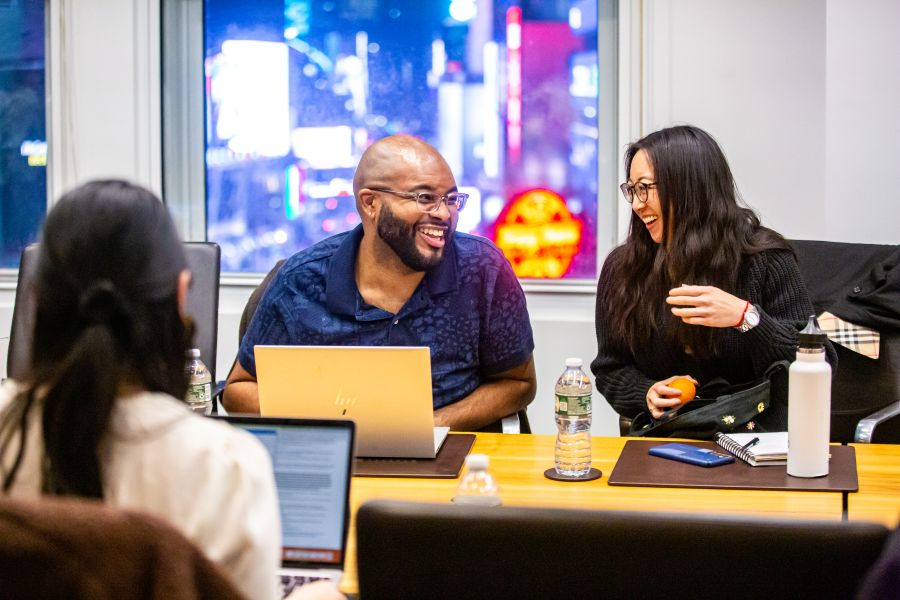Like so many of us who work in theatre, Miranda Gohh has spent the past few years wrestling with questions. Chief among them: How can we change the industry? How do we create seats at the table for folks who’ve been historically excluded? Fortunately, she emerged from the early 2020s with a signifi cant pathway forward: Theatre Producers of Color’s 11-week, tuition-free Producing 101.
After being laid off from a nonprofit theatre job in 2020, Gohh did a gut check. Do I still want to do this? she asked herself. If so, what kind of industry do I want to return to? She resolved to continue in the industry, but on different terms. Real change, she felt, “had to come from the top down. To me, that began with the producer.” Given the numerous barriers to becoming a producer, not least for young people of color, she set her sights on education.
Alongside a few other producers of color, Gohh and Sammy Lopez had already collaborated to found the Industry Standard Group, a coalition to increase the presence of producers and investors of color. Now they were ready to invest in the future. In their appeal to investors to help make Producing 101 tuition-free, Gohh said, “We’ve been able to get great buy-in from the industry,” including Broadway theatre owners, producing offices, and management offices, who see it as a commitment to a more just and diverse Broadway future.
These partners haven’t just funded the program, Lopez pointed out; they also constitute “an infrastructure of people who believe in the mission,” as he put it. Many have lent their offices as hybrid conference rooms, and helped to populate the program’s stellar speaker list.
Across the 11 weeks of the program, Lopez and the speakers break down commercial producing into building blocks, share case studies, describe the intricacies and terminology of producing, discuss approaches to collaboration and transparency, and pitch projects. Lopez highlighted one speaker, Harriet Tubman Effect Institute founder Nicole Johnson, who spoke about anti-racist practices and discussed the “reallocation of wealth,” getting participants to think about who has historically benefited—and how to spread that wealth around.
The program, now in its fourth year, feels like one answer. “We see it as a first step in a producer’s journey,” said Gohh. The program’s 76 alumni have amassed 56 Broadway credits, 18 Tony nominations, and one Tony win since participating in Producing 101.
It’s not really just about a seat at the table, said Lopez, but about reimagining the table itself. “It’s about leading with curiosity and looking at how these tables have been set historically,” said Lopez. “We get the opportunity to set our own table. What do you want to bring? A teapot? It can feel overwhelming at times when you’ve been historically excluded from so many rooms. My goal is to invite that pause and curiosity. Let’s make this industry 1 percent better each day.”
Gabriela Furtado Coutinho (she/her) is digital editor of American Theatre.
Support American Theatre: a just and thriving theatre ecology begins with information for all. Please join us in this mission by joining TCG, which entitles you to copies of our quarterly print magazine and helps support a long legacy of quality nonprofit arts journalism.
Related
Theatre Producers of Color Announce BIPOC Producing 101 Course
The 10-week, tuition-free course aims to teach participants the fundamentals of commercial producing.
In "Mid Atlantic"

Shubert Artistic Circle, Thrown Stone Commission, USITT
A roundup of prizes, fellowships, and other recognitions.
In "Awards"

8 BIPOC Producers Unite to Fund a Different Broadway
The Industry Standard Group is putting investment muscle and production prowess behind the effort to build a more representative commercial theatre.
In "Mid Atlantic"


